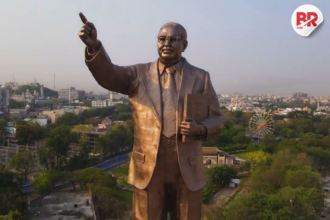
Hindu Leader Killed: India Demands Swift Justice After Bangladesh Murder
Bhabesh Chandra Roy, a prominent Hindu leader in northern Bangladesh, was found murdered days after being reported missing. The tragic incident has sparked strong diplomatic concern from India, which has urged Bangladesh to ensure the safety of all minority communities within its borders.

Roy’s murder is not an isolated case. It reflects a troubling pattern of violence against minorities that has raised alarms across the region. India’s reaction signals more than just neighborly concern—it’s a call for action that could shape future Indo-Bangladesh relations.
Why It Matters to You and Me
For the average citizen, this isn’t just a distant diplomatic issue. It touches on real fears—about safety, identity, and justice. When minorities are targeted, the social fabric tears, and peace becomes fragile. Whether you’re in Kolkata or Dhaka, the fear spreads fast and feels personal.
Minority persecution isn’t just a statistic—it’s someone’s father, someone’s leader, gone. And if regional leaders don’t act now, the cycle could deepen.
Also Read: India Tells Bangladesh to Focus on Its Own Minorities After Comment on West Bengal Violence
What Happened: The Facts So Far
According to Bangladeshi media reports, Roy was abducted in the Panchagarh district and later found dead under suspicious circumstances. Local Hindu groups have voiced fears of targeted attacks, especially with rising communal tensions in recent years.
As investigations begin, the demand from New Delhi is clear: justice must be swift, transparent, and uncompromising. India’s Ministry of External Affairs has officially requested Dhaka to take “urgent and visible steps” to protect religious minorities.
India’s Call: What Needs to Happen Now
India has outlined four immediate actions it expects from Bangladesh:
- Swift Investigation
Authorities must carry out a full, impartial probe and hold the killers accountable. Justice delayed here could worsen community tensions. - Better Protection
Increased security presence in vulnerable areas, especially for Hindu, Buddhist, and Christian communities. - Promote Religious Harmony
Community-level dialogues and peace initiatives to stop radical ideologies from taking root. - Legal Reforms
Strengthen laws against hate crimes and discrimination—words aren’t enough without legal teeth.
These demands are more than formalities—they’re survival tools. If Bangladesh acts decisively, it could become a model for pluralism in South Asia.
Also Read: Waqf Violence Escalates: Bangladeshi Miscreants in Bengal Spark Alarm
A Shared Past, A Fragile Present
India and Bangladesh share deep cultural and historical ties. Millions of Bengalis on both sides of the border feel a strong connection—of language, heritage, and belief. But as Roy’s murder shows, shared roots don’t always guarantee shared safety.
In times like these, silence is not neutrality—it’s complicity. Regional leaders must speak out and act up. Otherwise, today’s murder becomes tomorrow’s precedent.
Truth with a Twist
Religious violence has a nasty habit—it doesn’t knock before entering. It slips past borders, seeps into politics, and leaves communities scarred.
And while leaders debate, families bury.
This isn’t just about one Hindu leader killed in Bangladesh. It’s about choosing between two futures—one where minorities live in fear, and another where they live freely.
Looking Ahead: From Grief to Guardrails
What happens next in this case will speak volumes. Will justice be served? Will policy change? Or will this be another headline fading into silence?
India’s message is clear: protecting minorities is not optional—it’s fundamental. For the sake of peace in South Asia, Bangladesh must listen, act, and lead.












